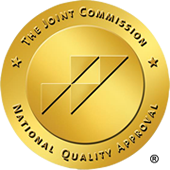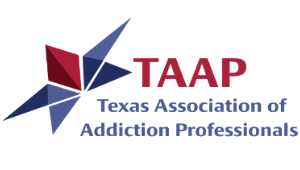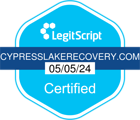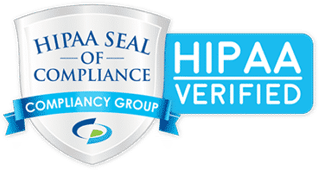Eating Disorder Treatment in Texas
When we think of addictive behaviors, we think of addictions like alcohol and drugs. But what about addictions to behaviors or things we do obsessively even though they cause us harm?
At Cypress Lake Recovery, we associate addiction with any destructive behaviors or habits that take control of our patients’ lives. The same underlying principle applies to eating disorders and the unhealthy thought process that creates a dark space inside those affected. Eating disorders might begin as small things, like dieting and exercise to get healthy or lose weight. But these behaviors can quickly turn into obsessions.
At our treatment facility in east Texas, we hope to help patients suffering from these eating disorders. We work to create a safe place to address these destructive thought processes and find hope. We support the idea that everyone is unique and should be supported with love and warmth. The only way we can recover from eating disorders and other addictions is when we feel cared for and understood.

Classifying Eating Disorders

An eating disorder is defined as a condition of the mind as it relates to eating habits that are unhealthy or abnormal. They largely break down into three types: anorexia, bulimia, and binge-eating disorder.
Anorexia Nervosa
Patients that represent this class of eating disorder are dangerously under what is considered a healthy weight, and they refuse to maintain a healthy weight even if a medical professional has directed it. Those with anorexia and continue to drop weight even while enduring rapidly declining health, convinced they are overweight or need to lose weight. Anorexia nervosa patients are unable to eat balanced or nutritious meals, regularly watch calories, and may fear fatty foods. The health repercussions of anorexia and can cause permanent damage over time.
Symptoms of anorexia nervosa:
- Bring underweight or malnourished
- Distortion of self-image
- Hair loss or thinning hair
- Blood pressure changes and irregular heart rate
- Hypertrophy of the heart
- Loss of organ function
- Unhealthy relationship with food
- Acute fear of eating and/or gaining weight
- Decline of muscle mass, causing anemia and weakness
- Chronic fatigue
- Digestive issues
- Difficulty maintaining warmth, sometimes leading to the growth of body hair named lanugo
- Skin deterioration
- Loss of bone density
- Anxiety and depression
Contact Our Admissions Team Today
Bulimia
Binge Eating Disorder
This disorder is the complete opposite of anorexia, because those that binge eat often overeat all at once and may suffer from excessive or sudden weight gain. People that suffer from bulimia are often overweight and have serious health problems due to the weight gain. They have the desire to lose weight but cannot due to binge-eating. There may not be vomiting or serious exercise, but intense guilt can come as a result of the overeating (especially if it takes place in secret.

Testimonials
![]()
![]()
![]()
![]()
![]()
Regina
I am so happy that I chose Cypress to begin my recovery. I have suffered for years from depression, anxiety, panic disorder, and PTSD. The programs that are offered here at Cypress have been truly phenomenal in helping me recover. I also appreciated the professional staff that are here on duty 24/7, which helps create a safe environment. Cypress Lake Recovery uses effective “one on one” methods that meet each person’s individual needs because they evaluate and have a better understanding of your personal traumatic experiences. Thanks Sabino, I am truly grateful to you and the Cypress family.
![]()
![]()
![]()
![]()
![]()
J.A.
A beautiful facility! Staff sets the tone and kindness that residents easily follow. Thank you, Cypress Lake Recovery!
![]()
![]()
![]()
![]()
![]()
Pamela
The program at Cypress Lake Recovery works! I emerged from an accumulation of unrecognized emotions, issues of trust, and unresolved grief and loss. 35-days of effective integration of customized quality therapy reconnected my mind, body, spirit, and I am worth it! I had masked emotions and hurtful events for decades with alcohol. At Cypress Lake Recovery I safely focused deep within to unleash harmful secrets and self-degradation. Tools of recovery were practiced, not just presented. Integrative therapies were tailored to my circumstances, thus were effective. This residential program is like no other. For me, Cypress Lake Recovery delivered what was professed. I am forever grateful for this gift of healing.
![]()
![]()
![]()
![]()
![]()
Mike
Life changing experience. Wonderful staff. Wonderful program. Thanks for everything!
![]()
![]()
![]()
![]()
![]()
Darcy
It was great to begin my recovery in a group environment with so many knowledgeable nurses, therapists, BHT’s, and others around for support. The equine therapy, challenge course, family week, and daily therapies all work together seamlessly, allowing me to leave Sabino as a healthier and stronger person!
Symptoms of bulimia:
- Decaying teeth
- Dehydration
- Vitamin and mineral deficiency
- Vision issues
- Constipation
- Anxiety
- Reduced self-esteem
- Intestinal conditions involving soft tissue decay (esophagus, mouth)
- Inflammation
- Heart trouble
- Chronic headaches
- Menstrual issues
- Depression
- Binge eating
Symptoms of binge-eating disorder:
- Weight gain (unhealthy BMI)
- Anxiety
- Heart disease
- Mood disorders
- Body-image disorders
- Ulcers
- Yo-yo dieting, frequently without results
- Stress
- Depression
- Chronic fatigue
- Self-esteem issues
- Overeating and stomach stress
- Digestion conditions
- Embarrassment when eating

Each of these eating disorders is based on negative or distorted images of the body. For some patients, this distortion of the body they see is fixated on and obsessed over until they can find ways to alter their bodies, whether they opt for surgery or some permanent modification. For those that opt for plastic surgery, they often try to resemble famous people or body types. This thought process can get worse with an eating disorder and turn into a concurring condition known as body dysmorphic disorder (BDD).
We offer nutrition management, medical observation, and medication management for treatment, as well as group therapy sessions with other patients that suffer from the same conditions to help create a safe and comforting space for our patients. We’ll help you with insurance verification so you can primarily focus on your recovery.
At Cypress Lake Recovery in Texas, we want to help you get back to your healthy self and to live without fear of embracing who you are. We teach love, motivation, and patience because recovery requires them to facilitate change. Call Cypress Lake Recovery today and start rediscovering your self-love.
Nationally Recognized & Accredited









